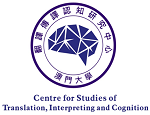This paper explores the psychological construct of intuition and its influence in decision-making behavior. Intuition was defined by Jung (1971) as a primary mode of perception operating subconsciously. As opposed to sensing personality types who prefer concrete details, intuitive personality types prefer to acquire information by imagining possibilities (Myers and Myers 1995). In this paper, an analysis of verbalization data from a translation process study is discussed in order to demonstrate the influence of intuition on decision-making during the translation process and to explore the implications of this influence. Recent studies have found that intuition plays a role in learning and decision-making tasks involving affect (Laborde et al. 2010, 786). Intuition is therefore here viewed as a potentially vital component of translator behavior which could predict individuals’ translating effectiveness.










































